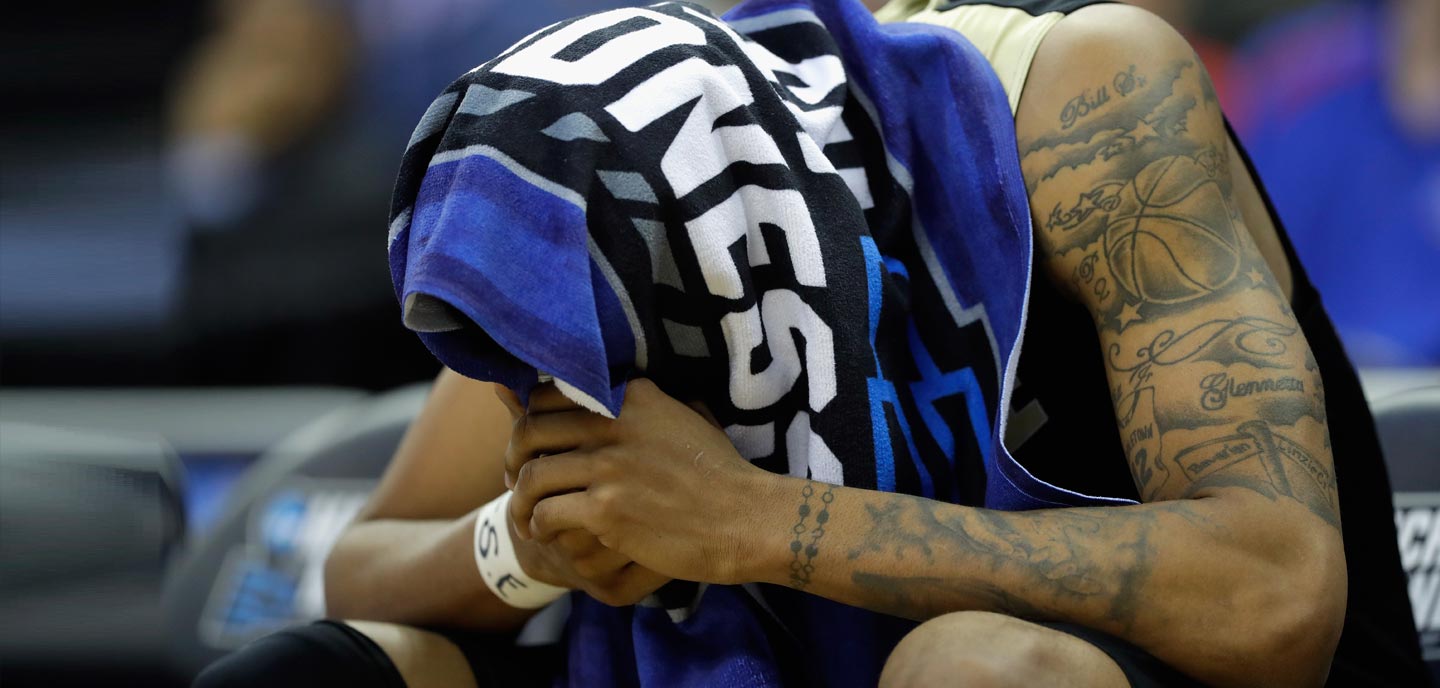Question: What does every team in every league in the world have in common with every reality TV show contestant at the end of each season?
Answer: All except one goes home with a loss on their mind.
While watching our premier American sports and music/dancing/cooking/fishing-and-whatever-else combatants this spring, it seems 1) everyone expects to be the last man/woman/team standing and 2) everyone seems shocked when they are sent home holding a final loss, as though winning were an entitlement and losing is for, well, losers—something experienced only on rare occasions like snow in the South.
Play to Win or Stay Home
This expectation isn’t necessarily bad. For certain, when an underdog contestant concedes defeat before the battle begins, our competitive instincts get insulted, as though unspoken rules of engagement were violated.
Get our "Top Articles" sent to your inbox weekly.
When the brackets come out and the sixteenth seed learns its fate, if competitive instinct doesn’t rile the underdog into believing at least among themselves that they can win, save the airfare and stay home.
You don’t invite, request, or welcome losing, and nobody intentionally practices to be second best—the first loser.
As former NFL football coach turned analyst Herman Edwards once famously said in a post-game interview after losing, “You play to win the game. Hello?”
The Great American Sin
In youth leagues across the country, our 5-year-olds learn from their parents’ and coaches’ behavior almost immediately the adage Vince Lombardi mythically popularized decades ago: “Winning isn’t everything—winning is the only thing.”
Whether on a field with balls or a stage with microphones, we are regularly reminded that failure to win should be welcomed like a slice of death, that losing practically equals a moral shame, a labeling source of guilt.
As long-time baseball writer Jerome Holtzman suggests, “Losing is the great American sin,” and we work devotionally to purge ourselves from experiencing its pain.
Whether You Like It or Not
But even an iconic “winner” like Lombardi, who tasted victory a ridiculous 74% of the time during the regular season over his 10-year career while taking five league championships, still drove home with something less than a championship in half of those years.
Lombardi’s 50/50 experience with final-game loss doesn’t mean he had to accept losing, but apparently even he had to make sense of it at the end of the season half the time.
Unfortunately, in a culture whose sole criteria for success is “winning it all,” we completely ignore an opportunity in sports to engage a central and practically unavoidable reality—even if distasteful and embarrassing to our senses—that life is far more about learning to lose well than experiencing the victor’s parade, whether we like it or not.
The adage that if you work harder than the other guy you’ll win more often than not gets infused into most of us at an early age. It parallels and derives energy from our capitalistic sensibilities, a worldview teaching that an individual work ethic ultimately separates winners from losers.
But that’s not guaranteed—in business, sports, or life—even if we find ourselves part of a “successful” program.
Most teams close their season with a loss—no matter how hard they worked. The challenge, of course, becomes losing without being a loser.
Jesus: The Loser’s Patron Saint?
For the Christ-following athlete, identity in Christ becomes immeasurably practical at this very point.
Understanding that she is loved unconditionally, forgiven freely, pursued endlessly, and given meaning and purpose that stretch far beyond the scoreboard, can free an athlete to rise above box-score circumstances, offering a steady anchor for the soul regardless of the score board’s final report.
Embracing what Christ says is true about themselves allows an athlete to strive for excellence every time out, to play with the intensity and passion and confidence of someone who anticipates victory while still being able to process defeat with dignity and depth for having faced the test—regardless of the final outcome.
To savor the ride and have wisdom enough to appreciate the God-given privilege of journeying in the first place.
To pursue winning on the scoreboard without allowing that to be the sole measuring instrument of our success.
To grow and become more of what God intended for us to be.
I’ll Take Jesus Against the Field
Lombardi summarized the American competitive spirit when he said, “If you can accept losing, you can’t win,” but that doesn’t mean he was right.
Accepting losing is unacceptable, but accepting loss is absolutely necessary, and in some cosmic way orchestrated in the sovereign mind of God, perhaps prepares a player or team to “win” the next time out, if not on the field, then possibly in life.
It’s always more fun to win on the scoreboard and we should never apologize for trying with every ounce of effort to do so.
But as coaches, players, parents, and fans, we might benefit from expanding and redefining our understanding of the place of both winning and losing—especially since, over the course of a lifetime, we’ll probably do far more of one than the other.
(This essay originally appeared on athletesinaction.org in March 2016 and on desiringgod.org in April 2014)














